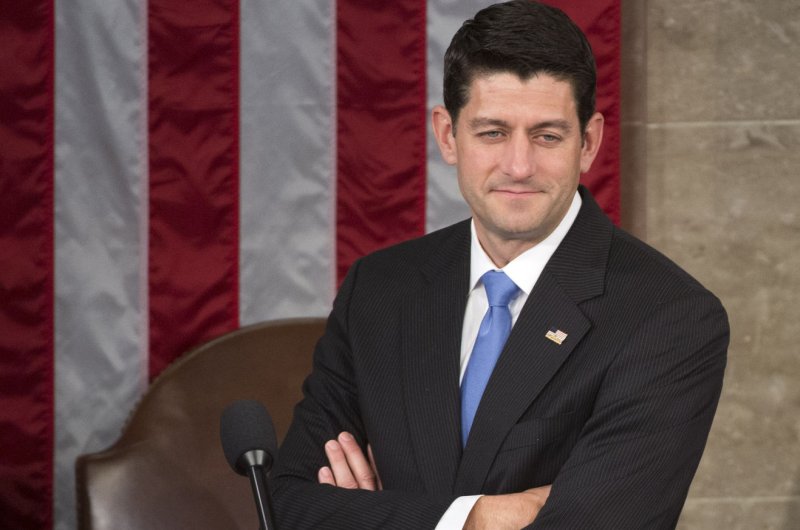Speaker of the House Paul Ryan said more sanctions against North Korea should be passed if necessary. Photo by Kevin Dietsch/UPI |
License Photo
WASHINGTON, June 10 (UPI) -- House Speaker Paul Ryan said the North Korea nuclear threat is the top priority in U.S. East Asia policy.
Ryan also said more economic sanctions should be passed to curb North Korea's nuclear ambitions if necessary, Voice of America reported.
The statement was part of a larger announcement on Republican national security priorities that Ryan made on Thursday.
Restraining North Korea means, among other things, strengthening cooperation with regional security allies South Korea and Japan, Ryan stated in the 25-page GOP national security plan.
"In East Asia, our allies are desperate for a greater American role. Our top priority must be to counter the threat of a nuclear North Korea. And we must respond strategically to expansionist China's rise, including checking its territorial ambitions," the report read.
"These challenges create opportunities to bring together Japan and South Korea while strengthening our ties with Taiwan and the Philippines."
The Ryan report's approach to regional alliances showed significant differences from presumptive Republican nominee Donald Trump's approach to alliances with South Korea and Japan –
even though so far the House speaker has not backed away from supporting Trump as the Republican presidential nominee.
Trump had said he is not opposed to the two countries building its own nuclear arsenal for defense purposes, nor is he against the removal of U.S. troops from South Korea.
Those statements were met with approval from North Korea last week, but Pyongyang has been less approving of an agreement that was reached during the Shangri-La Dialogue in Singapore, an annual regional security forum in Asia, among the United States, Japan and South Korea.
Senior North Korean military officer Pak Yong Sik said Friday a deal among the three countries to share information on North Korea's provocations was "unacceptable" and a threat to sovereignty.
Pak also said the deployment of anti-missile defense system THAAD poses a threat to peace on the peninsula.















